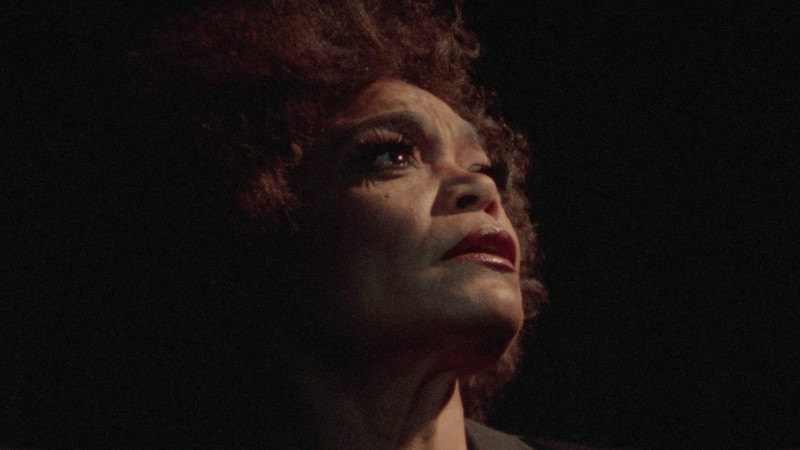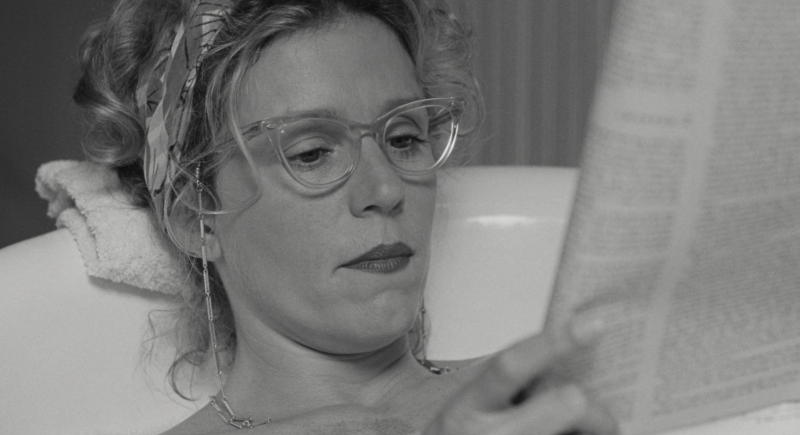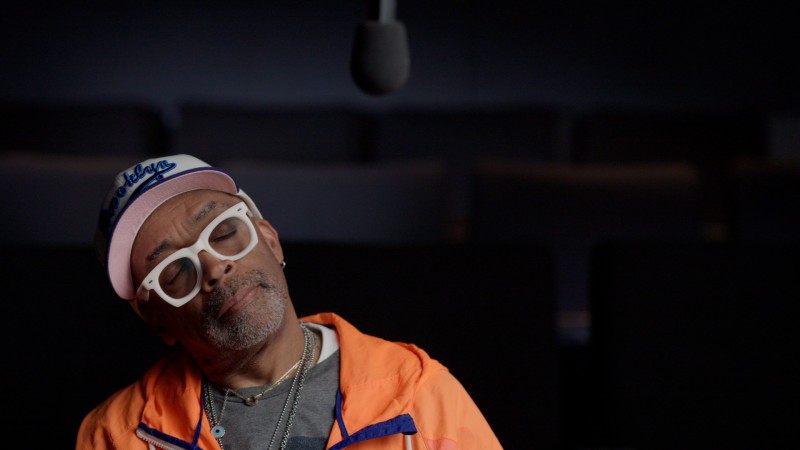Less Is More: Kristen Stewart in Clouds of Sils Maria

There’s an irreducible reserve about Kristen Stewart, an appearance of not doing much on-screen, that I mistook for lack of talent when I first saw her mumbling into her shirt in the Twilight franchise. Still, playing Bella Swan, chastity victim, put her firmly on the Hollywood map and beyond. The actress defines pale and strained, but it’s not as though she’s played sad sacks nonstop: director Greg Mottola brought out a precociously amused ironist in Stewart in his charming comedy Adventureland (2009), in which she played a worldly amusement park ring-toss girl who ushered Jesse Eisenberg into adulthood. She was a gas telling Donald Trump, “I’m so gay, dude!” while frolicking with putative biker dykes on Saturday Night Live. And now she’s about to take a welcome left turn into knockabout comedy with Elizabeth Banks’s upcoming Charlie’s Angels.
Even with these lighter roles under her belt, though, it’s true that Stewart’s innate seriousness and strategic underplaying don’t exactly project a light heart. With her long face, direct stare, and flat line delivery, the unconventionally lovely actress has the pale intensity of a medieval icon. Always content to take on ancillary roles if they strike her fancy, Stewart has, like Michelle Williams, found her indie footing playing a range of stuck, trapped, or incomplete women whose surface cool detachment covers for inner tumult. In Kelly Reichardt’s Certain Women (2016), Stewart rides a finely shaded tonal line between quietly unhappy and deadpan ridiculous. With her gamine beauty buried deep in a baggy ankle-length skirt and a badly knitted top of dullest yellow, she occupies less than half an hour of the portmanteau drama as a comically inept night-class law teacher who’s trying not to notice the romantic attentions of a young ranch hand played by the Native American actress Lily Gladstone, to whom Stewart readily cedes the limelight.
There’s invariably a sense of skittish concealment about Stewart, as if she’s trying to wriggle out of facile labeling, or as if one side of her wants to erase itself while the other stands ready to start an argument. No one has deployed Stewart’s elusive minimalism to better complicating effect than French director Olivier Assayas, who loves to play—often without tipping his hand—with the ambiguities in close ties between women. In both Clouds of Sils Maria (2014) and Personal Shopper (2016) Stewart plays efficient assistant to a neurotic diva. In the latter film, as the blandly named Maureen, a custom buyer of impossibly pricey clothing for a celebrity who’s never around, Stewart is not just the lead. She’s in almost every frame, silent more often than not as she tirelessly plies a smart phone for a job she plainly hates. Less efficiently, Maureen tries to process her grief for a twin brother who died of a congenital heart ailment she shares. She’s also being stalked around France by a possible ghost and, by text, a possible killer, or maybe her own unconscious.
Assayas’s roving camera bottles Stewart’s restless physicality—the boyish lope in perpetual restless motion, the rumpled sensuality—as Maureen tools around Paris on her scooter in jeans and a bomber jacket. The actress (who’s slated to play the similarly waifish Jean Seberg in the upcoming political thriller Against All Enemies) oozes androgynous glamour that casually bends gender so as to make it seem to not matter much to the story. Marinating in grief she can’t seem to shuck, Maureen has yet to discover that if she is half a person without her brother, she was also quite possibly half a person with him. Here Stewart subtly flags longings Maureen barely aware of until, texting furiously with the enigmatic Unknown Caller, she is persuaded to try on her absent boss’s slinky threads, which unleash long-suppressed desires.
Stewart occupies less screen time in Assayas’s gorgeous earlier Clouds of Sils Maria, but her secondary role as the slyly named Valentine, assistant to famous actress Maria Enders (Juliette Binoche), offers her a richer, deeper range of expression. Maria is facing a waning career as she preps ambivalently for a role in a play as an older corporate executive outmaneuvered by an ambitious younger upstart she once played herself. Shades of All About Eve, but in the pas de deux between Maria and Valentine that occupies much of the movie, Val is no Eve Harrington. Intelligent and culturally sophisticated far beyond the requirements of her job, Val, who’s all business in outsized glasses and hoodies, is her boss’s protector, a port in a storm who shelters Maria from a brash new world that threatens to sideline her. That—if only Val could get Maria to see her waving—is far from all there is, or might be , to their relationship.
Clouds of Sils Maria is rhythmically punctuated with seemingly quotidian interludes between Val and Maria as they hike, rehearse, plan gigs, and finesse schedules, or just hang out. In their scenes together, the lines of authority blur and devolve, resulting in a character study of two very different women—and the tortured layers of a relationship that always hovers (sometimes literally) on a cliff-edge of something more, or less.
Maria is the itch that Val, however adept she is at assuaging—and goosing—her boss’s insecurities, cannot seem to scratch. In the scene below, Maria has just bid a tearful goodbye to the widow of the beloved writer of her play, and we find her and Val having dinner together in the house Maria has rented for rehearsals. Their relaxed coziness is deceptive and so, we learn, were Maria’s earlier tears, as Val playfully quizzes Maria about the precise nature of her relationship with the dead writer. In their baiting banter we see the giggly, careless ease of a sisterly partnership whose professional boundaries have long since blurred into friendship laced with endlessly deferred erotic promise. A generational divide opens up in their clashing points of view on everything from love and intimacy to the merits of pop celebrity. But there’s more, as Val ups the ante of her questioning into an almost bitter needling of her alternately flirty and resistant employer, which suggests not just pent-up eros but a ravenous emotional hunger.
It can be hard to stand ground opposite Binoche, an enormously charismatic performer whose job, as the extravagant Maria, is to throw herself around while hiding every true feeling her character might harbor for Val. Less is more with Stewart, who delivers her lines in a poised monotone that betrays layers upon layers of sex, love, sorrow, and anger. Though the actress is more animated here than in any other movie I’ve seen her in, her inner turmoil bursts through in little gestural bubbles, in the way she chews on her lip, strokes her forehead absently with her finger. The eyebrows go up, the eyes swivel sideways in skeptical disbelief and mounting impatience at Maria’s endless push-pull of denial and equivocation. Buzzing around Maria like a hummingbird seeking nectar, Stewart’s Val is a woman on the verge of being done, and who will likely soon take control by voting with her feet.
And if that’s not enough anguished, suffering Kristen Stewart for you, wait till you see her help out Chloë Sevigny with a well-known patricide in Lizzie, now playing.




